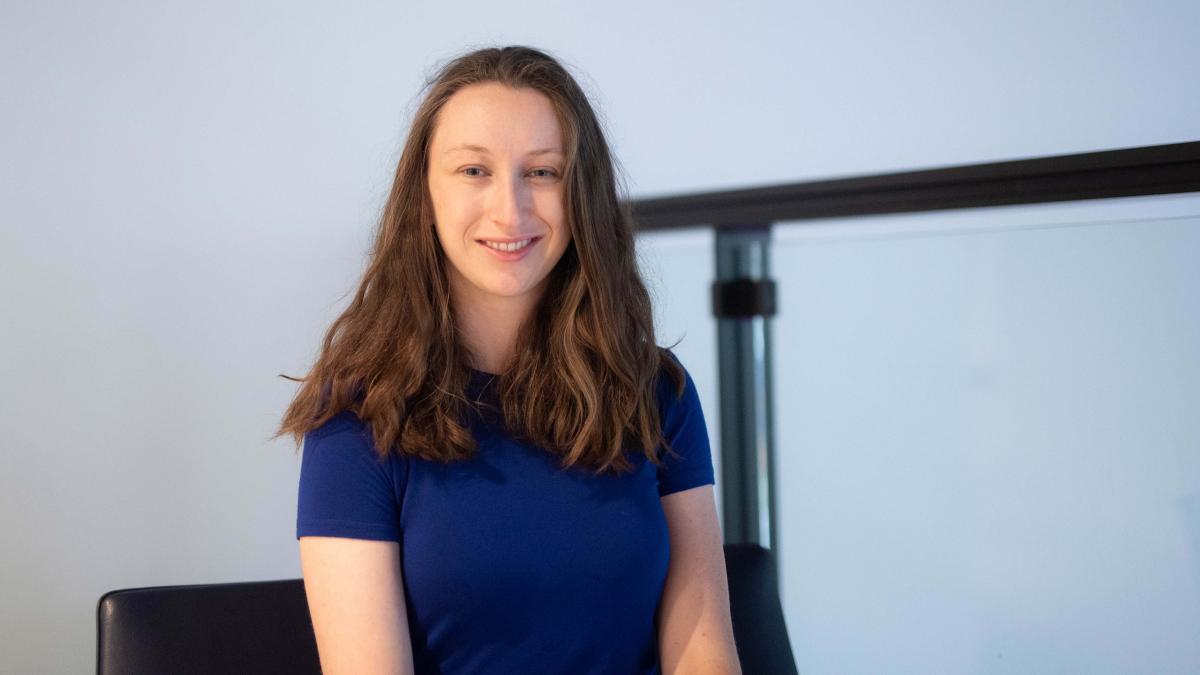Isabel Nerenberg, MS student in the UW Department of Environmental & Occupational Health Sciences (DEOHS), is one of two recipients of this year’s Russell L. Castner Endowed Student Research Fund, which supports student research in environmental health. We recently spoke with her about her master’s research on communities pursuing coastal relocation due to climate change and other disasters, her interest in qualitative research and her work with the PNASH Center on farmworkers’ concerns about wildfire smoke and child care.
Isabel Nerenberg
MS, Environmental Health
Hometown
San Diego, CA
Future plans
A career as a public health scientist focusing on community outreach or policy
“My research will hopefully improve the chances that policymakers will pay attention [to coastal relocation efforts].”
- Isabel Nerenberg
How did you get interested in environmental health?
I majored in public health as an undergraduate at San Diego State University. It was a general program, so we got a taste of everything. I took an environmental health class, and it was the only class out of all those different branches of study that I wanted to learn more about.
After that, I did my capstone project with a professor in toxicology on cigarette waste. It was really interesting, because I was one of the only undergrads that was working for her, and I got a lot of really valuable environmental health experience.
What is the focus of your master’s research?
I’m studying the relocation of coastal communities due to climate change and other disasters. It’s exciting because it's such a new topic. There haven't been a lot of communities that have done managed retreat or any form of coastal relocation, though some are considering it—including some coastal communities in the Pacific Northwest that face sea level rise and tsunami risk.
This project focuses on the potentially cascading health, well-being and environmental justice impacts that such communities may experience. There is very little research about such issues, and the few existing case studies show that different approaches to managed retreat have impacted the social and economic fabric of the communities involved, including disrupting the livelihoods, social capital, food and health security and cultural identity of community members.
The UW is the perfect place to study this, because we have so many people who work on relocation measures across the School of Public Health, and in the Department of Urban Design and Planning and the College of Engineering as well.
What will you use your Castner Award for?
I will be performing interviews with Pacific Northwest community stakeholders and scholars to develop a managed retreat and health research agenda.
I will then take this product to colleagues working with communities in the Tohoku region of Japan, where managed retreat has been used to recover from the 2011 Great East Japan Earthquake and tsunami, to leverage their experiences and confirm the efficacy of the research agenda.
We hope this research agenda will assist stakeholders at many levels to consider the impacts of managed retreat as well as inform community relocation planning and future policy.
How can the experience of communities in Tohoku help guide managed retreat efforts in the Pacific Northwest?
We are partnering with the International Research Institute of Disaster Science at Tohoku University because they are one of the first communities to implement large-scale managed retreat.
After the 2011 tsunami, coastal communities needed to be rebuilt, but based on the level of destruction, it was decided that coastal communities would move inland to prevent any similar events in the future.
The experiences of these communities will help determine the best methods possible for Pacific Northwest communities that may be planning or currently implementing managed retreat.
What has your experience been working with your adviser?
It's great to work with DEOHS Assistant Professor Nicole Errett. She has her hand in so many different projects, which means I do too. I love having the opportunity to branch out from what I've been focusing on.
Through her I've made many new connections. For example, I've been working with the Pacific Northwest Agricultural Safety and Health Center for the past six months on a project called Clean Air - I Care. It’s focused on understanding how farmworkers who are parents are contending with concerns about wildfire smoke and child care.
What has the program been like for you?
It was more technical than I was anticipating, because a lot of people who graduate from the department are going into practice, for example on water safety or air quality.
I came from a quantitative background through the toxicology research I did as an undergraduate, but as soon as I began working with Professor Errett, I realized I like qualitative research better. This year I'm excited because I get to focus more on the policy side of things.
What are your goals for after graduation?
I would love to be in some sort of public health practice. Whether that is some kind of community outreach or policy work, I'm not sure yet. All I know is that I want to be interacting with people as part of my job.




